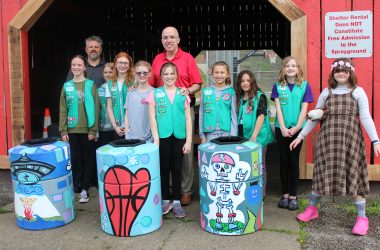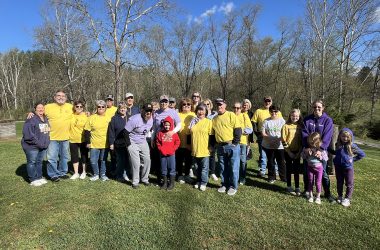Romans 6:1-14
“What shall we say then?” (v. 1). The “then” refers to that which Paul stated in the closing verses of chapter 5. The apostle said, “But where sin abounded, did grace abound much more.” The law revealed sin to be an impassible barrier which separated man from God. The only begotten Son revealed a grace that pierces that barrier.
It is with God’s grace in mind that Paul asks, “Shall we continue to sin, that grace may abound?” (v. 1). The apostle immediately answers: “God forbid.” If one thinks that an increase of sin produces an increase of grace, one is not thinking as God intends.
The Holy Spirit through Paul declares how we are to think through the question: “How shall we that are dead to sin, live any longer therein?” The prism through which God views us is Christ Jesus. The Father does not look upon our sin. He looks upon Him who left sin in the grave. We are dead to sin. Through grace we are no longer under the law. Sin’s influence is dead. The sin barrier which separated us from God was bridged by the Son. We have access to God through our Lord and Savior.
Paul addresses a lack of understanding on the part of believers of what it means to be dead to sin in verse 3 and following. When one is baptized, one goes into a watery grave, symbolic of the grave that Christ entered. Christ entered the grave with the weight of our sins pressing down upon Him. Every one of our sins remained in the grave when God raised up the Son. Believers are made dead to sin by being buried with Him in baptism.
When we are lifted from the watery grave, we are lifted up as Christ was lifted up. Our sins are left in the grave. We rise to live with Him. We are to walk in the newness of life (v. 4). The past is past. The past was ruled by our sin nature. Our sin nature is to rule no longer. Christ, not sin, is our Lord. We are to walk in His ways.
The newness of life in which we are to walk should testify of sin’s burial in the watery grave. Our walk is to be controlled by Christ who was raised from the grave. Baptism by submersion testifies that we are planted in the grave with Him. Being lifted from the waters of baptism is a proclamation that we have left sin behind. We are to strive to be as He is. Sin’s hold is broken.
In verse 5, Paul links being planted with Christ in death to being raised with Him in His resurrection. Paul used the qualifier “if.” One is not raised with Christ unless one is buried with Christ. If one believes he is raised with Christ, one believes that his sins are left in the grave. Continuing in sin after baptism is an expression of unbelief. Actions are louder than words. Continuing in sin says Christ’s death is of no effect.
In verse 11, Paul instructs believers to realize that we are alive through Jesus Christ. Jesus is the doorway to life.
We continue to live in a mortal body but we are not to allow sin to govern our mortal bodies (v. 12). Christ, not sin, is to direct our lives. We are called to love one another as He loves us. We are not to live for ourselves, but for others. Christ arose for us.
In verse 13, the apostle instructs all who are raised from the grave with Jesus to stop letting their physical body parts (arms, legs, ect.) be instruments of sin. Our physical body parts are to be instruments of righteousness unto God. Our physical body parts include our brains. The brain is to be an instrument of righteousness. How? We are to think upon “whatsoever things are true, whatsoever things are honest, whatsoever things are just, whatsoever things are pure, whatsoever things are lovely, whatsoever things are of good report; if there be any virtue, and if there be any praise, think on these things” (Phil. 4:8).
When we think upon these things, we will not wrongly employ our body parts. Sin will not rule over them who live under grace.
Born again Christians both know and believe that they are justified through Christ Jesus, but often fail to exhibit His righteousness. Our physical body parts testify of whom we serve. Being raised from a watery grave as Jesus was raised from the dead, we are servants of righteousness.
One cannot serve two masters. There is no middle ground — one is either a servant of sin or a servant of righteousness. All have sinned and come short of the glory of God (3:23). Believers have accepted the gift of life and have become servants of righteousness. When we fail, we have an advocate with the Father. Christ Jesus is quick to forgive us when we confess our sins.
The servant of sin produces fruits of sin. The servant of righteousness produces fruits of righteousness. A tree is known by its fruits. Believers are called to produce fruit which glorifies the Lord God. Let our walk be one that declares that we are free — that we are dead to sin.



